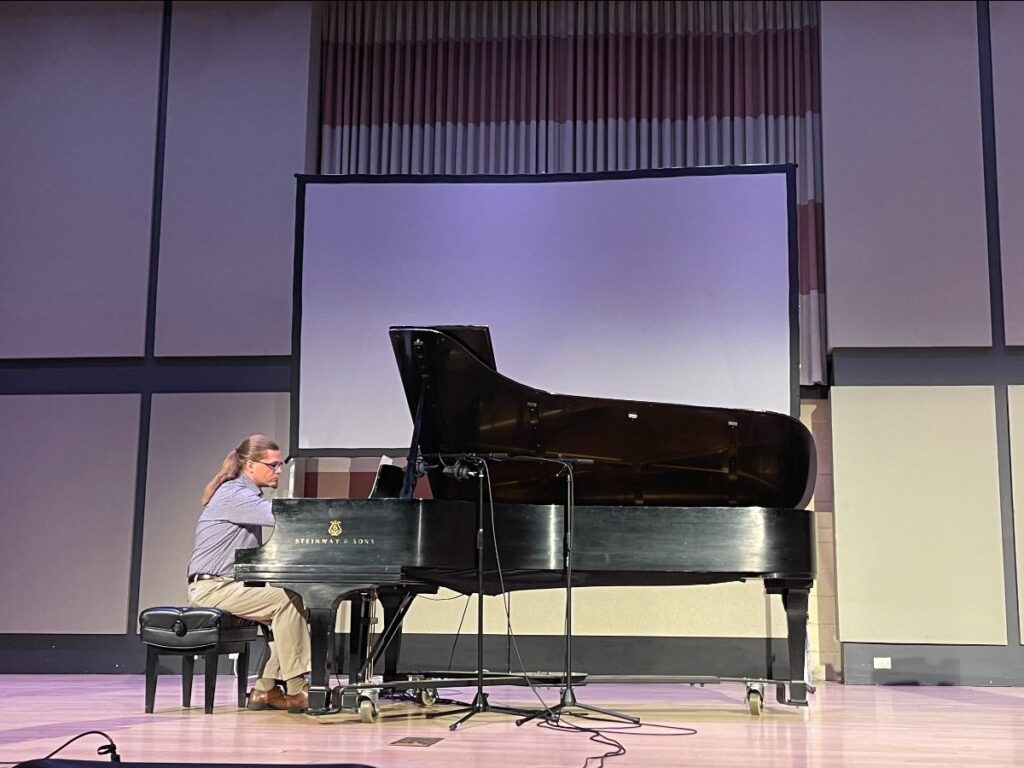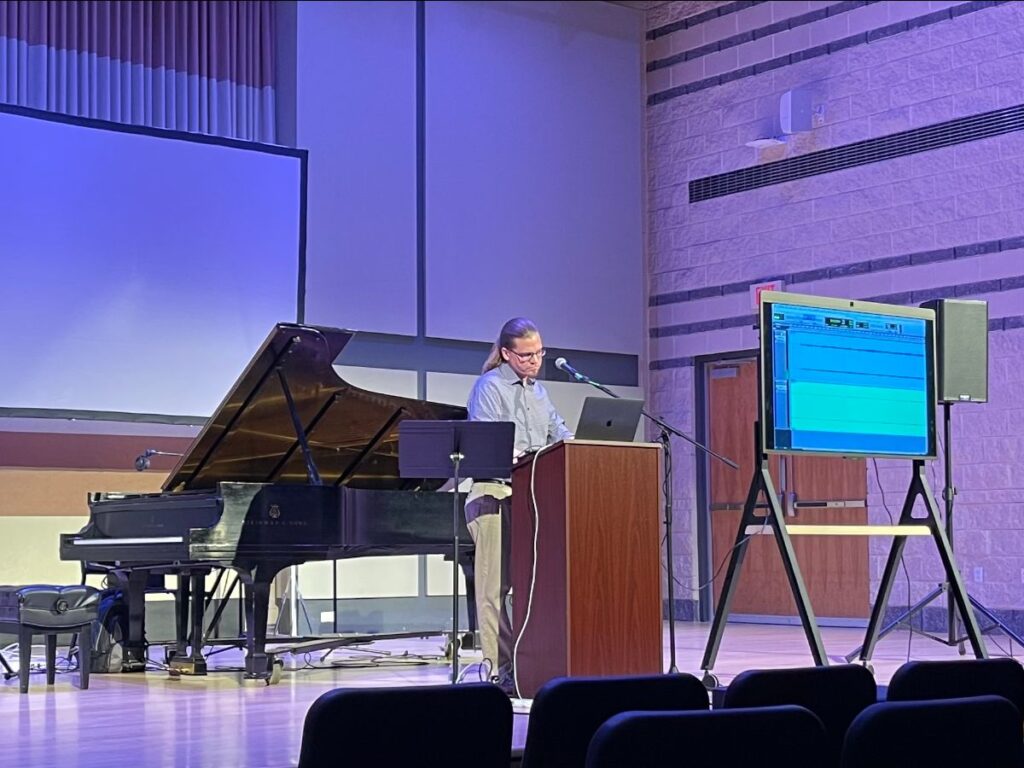As a music student at the University of North Florida, I enjoy attending the concerts put on by the different instrument studios and ensembles. Now that I’m in the middle of my junior year at UNF, every minute I spend learning about music, the more I fall in love with it. In this newsletter, I will write about my experiences, thoughts, and opinions I have when attending the shows. Music is a language… an art form… a way of living. Here, I hope to translate that language into something more suitable for you, the reader.

As a music student at the University of North Florida, I enjoy attending the concerts put on by the different instrument studios and ensembles. Now that I’m in the middle of my junior year at UNF, every minute I spend learning about music, the more I fall in love with it. In this newsletter, I will write about my experiences, thoughts, and opinions I have when attending the shows. Music is a language… an art form… a way of living. Here, I hope to translate that language into something more suitable for you, the reader. Last weekend, I attended the Jacksonville Electroacoustic Music Festival (jemFEST), an event hosted at UNF annually.
Travison Garrison, Ph.D., assistant professor of music theory and music technology at the University of Central Missouri was this year’s guest speaker/performer at jemFEST.
In his first lecture, Tech Talk, Garrison spoke on the evolution of his career in music technology. He explained that his career has been a compilation of composing, studio-based recording, and live sound engineering. Garrison told us that his goal was to provide advice on how music and technology can be combined in a number of ways to create a career.
Key principles Garrison noted when building a music technology career were the following:
• Be flexible.
• Take the opportunities presented to you to build your portfolio and your resume.
• Be ready to adapt to changes in the industry/economy.
Dr. Garrison then delved into the timeline of his career.
When he was 18-years-old, Garrison was hired at a church as a music director and worked there for six years. This was the point when he realized he was interested in being a team leader, an organizer, the person in charge.
San Diego was Garrison’s next home, where he went to college at the University of California and majored in computer science. It wasn’t long until he realized this path was not something he wanted to pursue. Picking up a minor in music theory and composition gave him the opportunity to meet musicians and composers. From here, Garrison’s career took a turn.
Making connections with the right people was another principle to success Garrison emphasized in his lecture.
From San Diego, he moved to New Hampshire. The connections Garrison made in his career thus far led him to more job opportunities in this new environment. His next opportunity was at Bennington College in Vermont, where he worked for two years as a live sound engineer while lending a hand in various projects, including sound design for theater productions. He learned more about incorporating music and technology, as well as theater terminology, which he found to help him substantially later in his career.

Dr. Travison Garrison, photo taken by Lisa Marino
Yearning to learn more, Garrison became a Gator and earned a doctoral degree in music composition at the University of Florida.
Following his interest of being in charge, Garrison took a job at East Carolina University managing studios, supervising graduate students, and being the manager of a large auditorium. Garrison noted that there were particularly a lot of jazz and R&B shows that came through the auditorium.
After three years at East Carolina University, he transitioned to the job he currently holds at the University of Central Missouri.
Since 2018, Garrison’s goal with the music technology program at the university has been to teach students many aspects of the field; Garrison teaches students about live sound reinforcement, studio recording, and composition utilizing technology.
Even if it isn’t in the field of music, a career is a journey – it evolves. One opportunity may lead to another, one connection may lead to three more. As Tom Peters said, “If a window of opportunity appears, don’t pull down the shade.”

